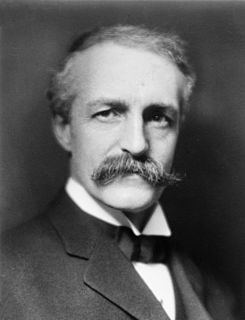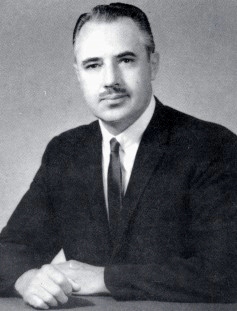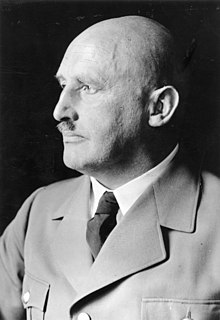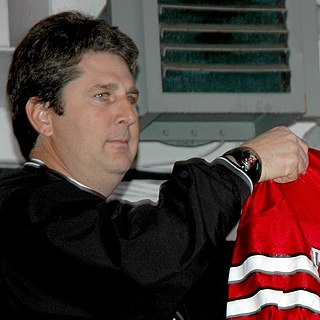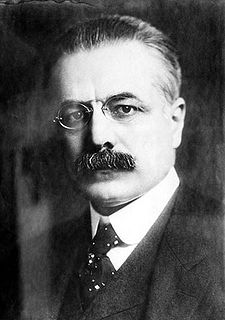Top 85 Railroads Quotes & Sayings - Page 2
Explore popular Railroads quotes.
Last updated on April 20, 2025.
These bright roofs, these steep towers, these jewel-lakes, these skeins of railroad line - all spoke to her and she answered. She was glad they were there. She belonged to them and they to her. . . . She had not lost it. She was touching it with her fingertips. This was flying: to go swiftly over the earth you loved, touching it lightly with your fingertips, holding the railroads lines in your hand to guide you, like a skein of wool in a spider-web game - like following Ariadne's thread through the Minotaur's maze, Where would it lead, where?
My profession brought me in contact with various minds. Earnest, serious discussion on the condition of woman enlivened my business room; failures of banks, no dividends from railroads, defalcations of all kinds, public and private, widows and orphans and unmarried women beggared by the dishonesty, or the mismanagement of men, were fruitful sources of conversation; confidence in man as a protector was evidently losing ground, and women were beginning to see that they must protect themselves.
High-speed trains in Japan can now reach 375 mph - twice as fast as any public transit train in the United States. America's railroads were once the envy of the world. Today they are in disrepair and we are falling further and further behind the rest of the world. We need to rebuild our crumbling infrastructure, including rail. When we do that we not only make our country more productive and efficient, we create millions of new jobs.
If I were a factory employee, a workman on the railroads or a wage-earner of any sort, I would undoubtedly join the union of my trade. If I disapproved of its policy, I would join in order to fight that policy; if the union leaders were dishonest, I would join in order to put them out. I believe in the union and I believe that all men who are benefited by the union are morally bound to help to the extent of their power in the common interests advanced by the union.
Lincoln was a modernizer, so to speak. He believed in economic development. As a Whig before the war he favored what we would call infrastructure spending, government appropriation for canals, railroads, river and harbor improvements, and a tariff to protect industry. He believed in this market revolution that was sweeping across Northern society. He himself benefited from it in his own life.
The American Colossus was fiercely intent on appropriating and exploiting the riches of all continents - grasping with both hands, reaping where he had not sown, wasting what he thought would last forever. New railroads were opening new territory. The exploiters were pushing farther and farther into the wilderness. The man who could get his hands on the biggest slice of natural resources was the best citizen. Wealth and virtue were supposed to trot in double harness.
[At the end of the story, its main character, Tom] is now a great man of science, and can plan railroads, and steam-engines, and electric telegraphs, and rifled guns, and so forth; and knows everything about everything, except why a hen's egg don't turn into a crocodile, and two or three other little things that no one will know till the coming of the Cocqcigrues.
People are the common denominator of progress. So no improvement is possible with unimproved people, and advance is certain when people are liberated and educated. It would be wrong to dismiss the importance of roads, railroads, power plants, mills,and the other familiar furniture of economic development. But we are coming to realize that there is a certain sterility in economic monuments that stand alone in a sea of illiteracy. Conquest of illiteracy comes first.
As to the Income Tax, my opinion is that the needful revenue would be fairly and most fairly raised if paid by property, and by individuals in proportion to their property. A Property Tax should be an assessment upon all land and buildings, and canals and railroads, but not on property such as machinery, stock in trade, etc. The aristocracy have squeezed all they can out of the mass of the consumers, and now they lay their daring hands on those not wholly impoverished.
It was the White Man who spanned the continents of the world with railroads and super highways and electrical power lines. It was the White Man who created the miraculous world of electronics, ushering in the telephone, the radio and television. It was the White Race, who in a combined burst of energy and genius sent rockets to the moon and planted the feet of the White Man on extra-terrestrial territory in the last decade.
If only I had some grease I could fix some kind of a light," Ma considered. "We didn't lack for light when I was a girl before this newfangled kerosene was ever heard of." "That's so," said Pa. "These times are too progressive. Everything has changed too fast. Railroads and telegraph and kerosene and coal stoves--they're good things to have, but the trouble is, folks get to depend on 'em.
We handed the most important belongings of our people - the railroads and the banks - to aliens who 2000 years ago had turned the temple into a house of usury. Back then there was a man who had the bravery to drive out these scoundrels with a whip! If today a national socialist is seen with such a temple-whip, he's thrown into jail.
Behaviorism proposes to study human behavior according to the methods developed by animal and infant psychology. It seeks to investigate reflexes and instincts, automatisms and unconscious reactions. But it has told us nothing about the reflexes that have built cathedrals, railroads, and fortresses, the instincts that have produced philosophies, poems, and legal systems, the automatisms that have resulted in the growth and decline of empires, the unconscious reactions that are splitting atoms.
You'll have to have the governments sell off all of their public domains; sell off their railroads, sell off their public land. You'll essentially have to introduce neo-feudalism. You'll have to roll the clock of history back a thousand years, and reduce the European population to debt slavery. It's as simple a solution as the Eurozone has imposed on Greece. And it's a solution that the leaders and the banks are urging for responsible economists to promote for the population at large.
That's our mirror. Every dip, every crash, every bubble that's burst, a testament to our brilliant stupidity. This one gave us the railroads. This one the Internet. This one the slave trade. And if we hope to do anything about saving the environment, or getting to other worlds, we'll need a bubble for that too. Everything I've ever done in my life worth anything has been done in a bubble: in a state of extreme hope and trust and stupidity.
Our inventions are wont to be pretty toys, which distract our attention from serious things. They are but improved means to an unimproved end, an end which it was already but too easy to arrive at; as railroads lead to Boston or New York. We are in great haste to construct a magnetic telegraph from Maine to Texas; but Maine and Texas, it may be, have nothing important to communicate.
It will be hard James but you come from sturdy peasant stock men who picked cotton and dammed rivers and built railroads and in the teeth of the most terrifying odds achieved an unassailable and monumental dignity You come from a long line of great poets some of the greatest poets since Homer. One of them said "The very time I thought I was lost My dungeon shook and my chains fell off." You know and I know that the country is celebrating one hundred years of freedom one hundred years too soon. We cannot be free until they are free. God bless you James and Godspeed.
When the Egyptians were building the pyramids or the Romans were building roads, or you had the westward push with the railroads, I don't think that the guys on the ground were spending a lot of time thinking, 'Hey, hundreds or thousands of years from now they will look back at the brick I have just laid down here and say that I changed the world!'
You have to take a broader view and realize this is an industry like any other - telecoms, Railroads; they went through consolidation. Why shouldn't the computer industry be any different? This shouldn't have been a surprise to anybody but it seemed to be, and a lot of people thought I was nuts when I said these things. And that's why they are alone as a consolidator.
I love songs about horses, railroads, land, Judgment Day, family, hard times, whiskey, courtship, marriage, adultery, separation, murder, war, prison, rambling, damnation, home, salvation, death, pride, humor, piety, rebellion, patriotism, larceny, determination, tragedy, rowdiness, heartbreak and love. And Mother. And God.
Whether railroads or electricity or the Internet, there is always some sense that this is the new, redemptive platform - that finally, finally, we've found the platform that will allow us all to lead a democratic, global existence, where all problems will be solved. And the idea that the old platform becomes obsolete, "this kills that," and so on, also often accompanies the advent of a new technology. The digital platform is no exception.
This country has achieved its commercial and financial supremacy under a regime of private ownership. It conquered the wilderness, built our railroads, our factories, our public utilities, gave us the telegraph, the telephone, the electric light, the automobile, the airplane, the radio and a higher standard of living for all the people than obtains anywhere else in the world. No great invention ever came from a government-owned industry.
What would you call America's most priceless asset? Surely not its limitless natural resources, not its matchless national wealth, not its unequalled store of gold, not its giant factories, not its surpassing railroads, not its unprecedented volume of cheap power. Is not its most priceless asset the character of its people, their indomitable self-confidence, their transcendent vision, their sleepless initiative and, perhaps above all, their inherent, irrepressible optimism?






